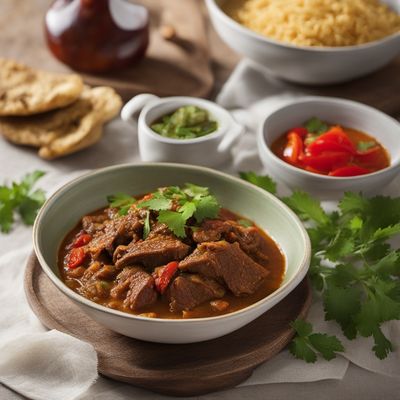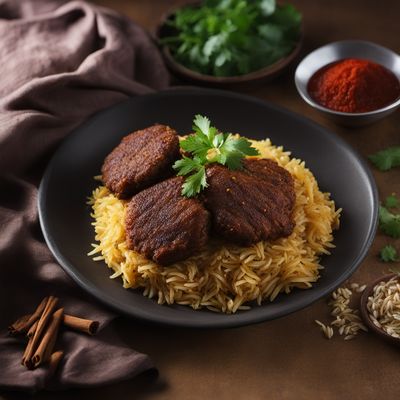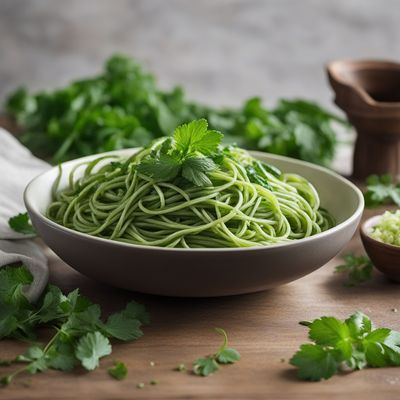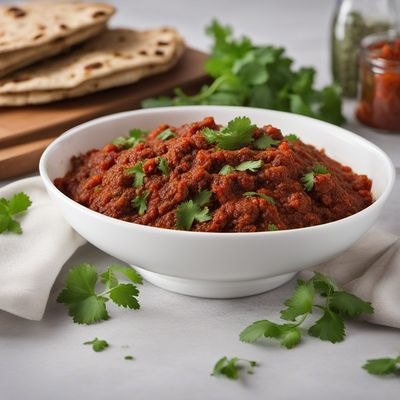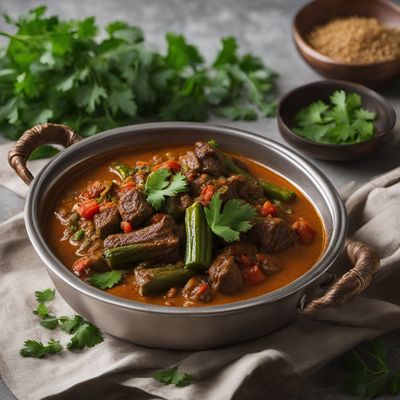
Recipe
Kisra - Sudanese Sorghum Flatbread
Savory Delight: Kisra - A Taste of Sudanese Tradition
4.5 out of 5
Kisra is a traditional Sudanese flatbread made from sorghum flour. It is a staple in Sudanese cuisine and is enjoyed as a versatile accompaniment to various dishes. This recipe will guide you through the process of making Kisra, allowing you to experience the authentic flavors of Sudanese cuisine.
Metadata
Preparation time
15 minutes
Cooking time
20 minutes
Total time
35 minutes
Yields
4 servings
Preparation difficulty
Easy
Suitable for
Vegan, Vegetarian, Gluten-free (if using gluten-free all-purpose flour), Dairy-free, Nut-free
Allergens
N/A
Not suitable for
Paleo, Keto, Low-carb, High-protein, Grain-free
Ingredients
-
2 cups (240g) sorghum flour 2 cups (240g) sorghum flour
-
1 cup (120g) all-purpose flour 1 cup (120g) all-purpose flour
-
1 teaspoon salt 1 teaspoon salt
-
2 cups (470ml) warm water 2 cups (470ml) warm water
-
1/2 teaspoon active dry yeast 1/2 teaspoon active dry yeast
Nutrition
- Calories (kcal / KJ): 180 kcal / 753 KJ
- Fat (total, saturated): 1g, 0g
- Carbohydrates (total, sugars): 39g, 0g
- Protein: 5g
- Fiber: 3g
- Salt: 1g
Preparation
-
1.In a large bowl, combine the sorghum flour, all-purpose flour, and salt.
-
2.Dissolve the yeast in warm water and let it sit for 5 minutes until frothy.
-
3.Gradually pour the yeast mixture into the flour mixture, stirring continuously to form a smooth batter.
-
4.Cover the bowl with a clean kitchen towel and let it ferment overnight at room temperature.
-
5.The next day, heat a non-stick skillet or griddle over medium heat.
-
6.Stir the fermented batter gently and pour a ladleful onto the hot skillet, spreading it thinly in a circular motion.
-
7.Cook the Kisra for about 2-3 minutes on each side until golden brown spots appear.
-
8.Remove the cooked Kisra from the skillet and repeat the process with the remaining batter.
-
9.Stack the Kisra flatbreads on a plate and cover them with a clean kitchen towel to keep them warm and soft.
-
10.Serve the Kisra alongside your favorite Sudanese dishes or use it as a wrap for fillings of your choice.
Treat your ingredients with care...
- Sorghum flour — Ensure you are using finely ground sorghum flour for a smoother texture in the Kisra.
- Active dry yeast — Make sure the yeast is fresh and active to ensure proper fermentation of the batter.
Tips & Tricks
- For a tangier flavor, you can add a tablespoon of yogurt to the batter during fermentation.
- Adjust the thickness of the Kisra by adding more or less water to the batter.
- If you prefer a softer Kisra, cover it with a damp cloth after cooking to retain moisture.
- Kisra can be stored in an airtight container for up to 3 days or frozen for longer shelf life.
- Experiment with different fillings and spreads to create delicious Kisra wraps.
Serving advice
Serve Kisra warm alongside Sudanese stews, curries, or dips. It can also be enjoyed as a snack or used as a wrap for fillings such as grilled vegetables, falafel, or hummus.
Presentation advice
Arrange the Kisra flatbreads on a platter, slightly overlapping each other. Garnish with fresh herbs or sprinkle with sesame seeds for an appealing presentation.
More recipes...
More Sudanese cuisine dishes » Browse all

Shaaria
Shaaria is a traditional Uzbek dish made with lamb and noodles.

Eneksa agaga
Eneksa agaga is a traditional Ethiopian dish that is made with injera, a sourdough flatbread, and a variety of stews and sauces. This dish is...

Kisra
Kisra is a traditional Sudanese flatbread that is made with a combination of sorghum flour, water, and salt. It is a staple food in Sudan and is...

